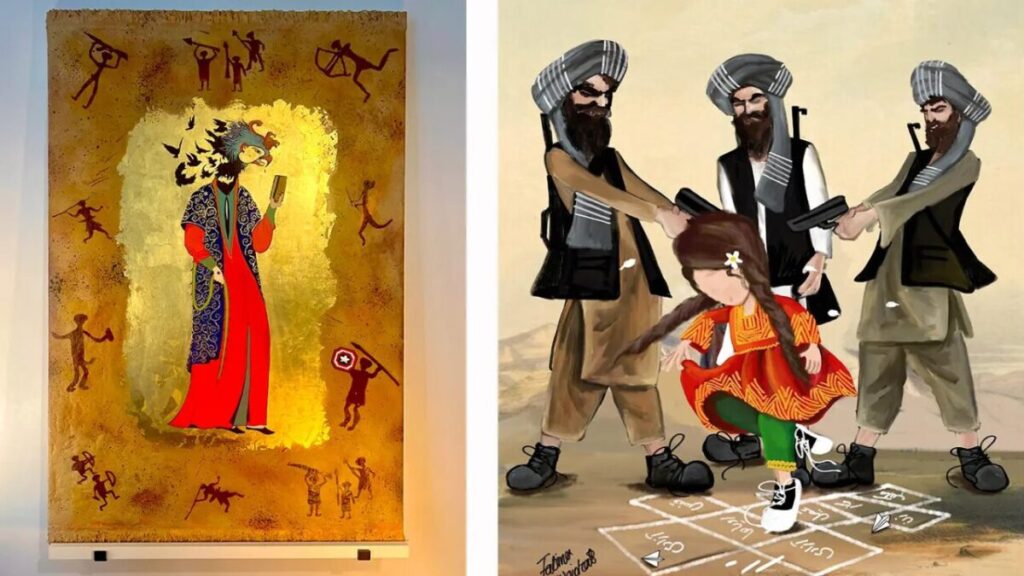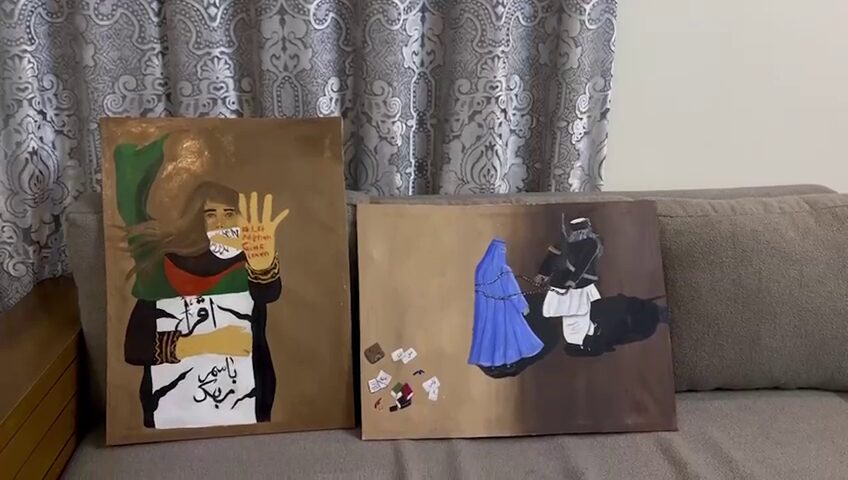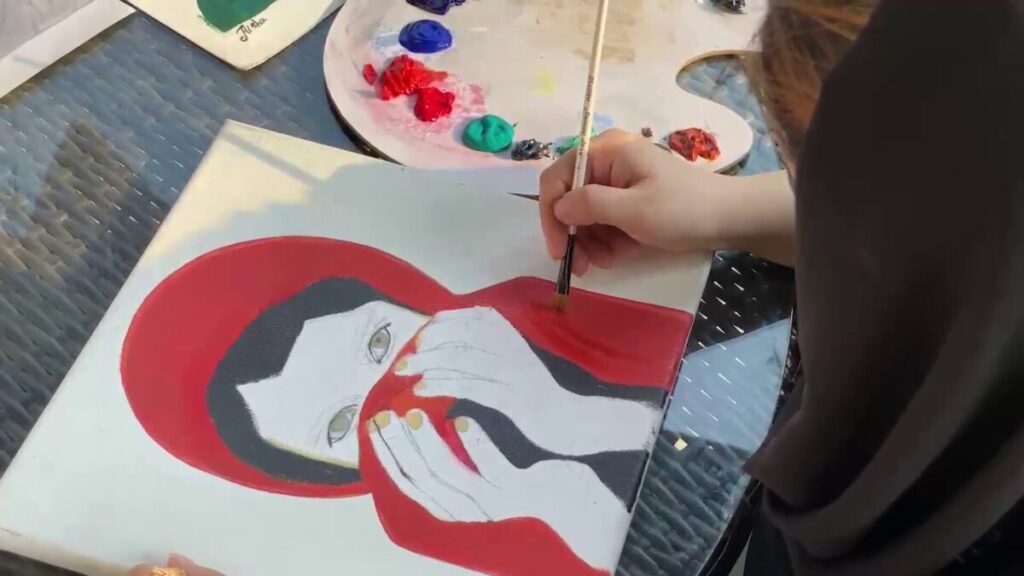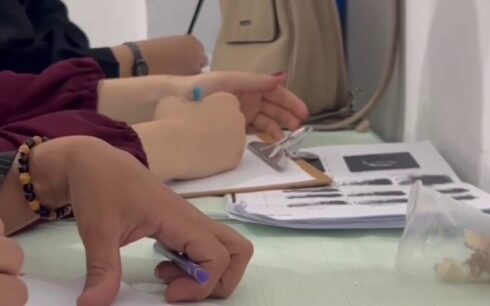KABUL, Afghanistan — Afghan women artists are playing a crucial role in resisting Taliban oppression, Human Rights Watch said in a report highlighting the contributions of two exiled artists whose work challenges the systematic abuses faced by women and girls under Taliban rule.
The report, released to coincide with the conclusion of the annual 16 Days of Activism Against Gender-Based Violence, is titled “A Human Being Is More Delicate Than a Flower and Tougher Than a Rock.” It honors Rada Akbar, a conceptual artist, and Fatima Wojohat, an artist who works with chalk and digital mediums. Both use their art to depict the oppression of women in Afghanistan and express solidarity with the grassroots women’s movement resisting Taliban policies.

“A resistance movement is shaped, empowered, and maintained by those who support it in different capacities,” said Sahar Fetrat, a women’s rights researcher at Human Rights Watch. “Women artists, much like the women protesters who marched with the slogan ‘bread, work, freedom,’ demand dignity and equality for all, and play a vital role in shaping this grassroots movement.”
The report praised Akbar and Wojohat for their creativity, patience, and passion, noting that their work connects with women and girls in Afghanistan, many of whom have been cut off from artistic expression due to Taliban restrictions.
“They share their artwork and messages of solidarity and hope,” the report stated, adding that the artists aim to inspire girls and women who have been silenced under the regime.

Since the Taliban seized control of Afghanistan on August 15, 2021, Human Rights Watch noted that the Taliban have systematically violated the rights of women and girls. These violations include banning women from education beyond sixth grade, restricting their participation in the workforce and public life, limiting their freedom of movement, and even silencing their voices in public spaces.
Human rights groups have described these policies as “gender apartheid” and “gender persecution,” with the Taliban’s rules enforcing the most severe restrictions on women’s rights in the world.
According to the report, Akbar and Wojohat’s art highlights themes of resilience and resistance to oppression, emphasizing the strength of Afghan women. Their work not only reflects the struggles of women and girls under Taliban rule but also serves as a source of inspiration for a growing resistance movement.
“While Afghanistan remains the world’s gravest women’s rights crisis, it is crucial to acknowledge the Afghan women’s grassroots movement and those who nourish it with their wisdom, bravery, and art,” Fetrat said.





